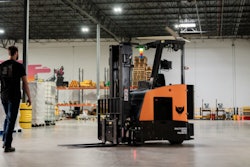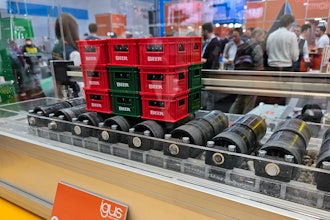LITTLE ROCK (AP) -- The Cargill food company said Thursday it will not rebuild its Booneville meat plant destroyed in a March explosion, despite economic incentive offers from the state and city.
John O'Carroll, the company's value added meats president, said in a news release that rebuilding the plant would take up to 22 months, longer than the company originally estimated.
He said the decision not to rebuild in the north Arkansas city was agonizing, especially because local and state officials were supportive of Cargill staying.
The Booneville plant employed 800 people in the town of 4,000.
''We need to rebuild the business now to take care of our customers,'' O'Carroll said. ''We can do that by making use of existing space at other facilities, but not if we waited up to 22 months to build a new plant.''
Gov. Mike Beebe said last month that the state had put together an incentive package to encourage Cargill to rebuild in Booneville. Mayor Jerry Wilkins had estimated the incentives offered by his city were worth between $700,000 and $1 million.
The incentives included a 35-acre plot of land next to the existing meat packing plant, which was all but destroyed in the March 23 fire and explosion. The package included tax incentives and breaks on water and sewer bills, Wilkins said.
Wilkins said Thursday he learned of Cargill's decision that morning, then met with local business leaders.
''There's a lot of long faces,'' Wilkins said. ''But we've been down this road before.''
Booneville's Today's Plastics plant incrementally cut 500 jobs, Wilkins said, adding that the Cargill loss was more drastic because it happened all at once.
''We didn't know so we were kind of expecting the worst,'' Wilkins said. ''We have no railroad, we have no interstate, we don't have any other (Cargill) plants nearby.''
Wilkins said the city would still aggressively seek new industries and employers but will target manufacturers with smaller operations than Cargill's.
''We need to be more interested in 100-people companies,'' he said. ''Very seldom you get one with 800 in a community of 4,000. A company that has 800 employees, they're going to Fort Smith, they're going to Little Rock where there's a bigger workforce.'' The company, based in Wayzata, Minn., had offered workers at the plant jobs at other sites and told workers that if they want to relocate, they should apply for jobs at turkey processing operations in Springdale or Dayton, Va., or California, Mo.






















